

Intro to Culinary Training can be a daunting task, yet an exiciting one! Finding employment as a personal chef provides the opportunity to craft customized menus and creatively prepare meals for individuals. Apprenticeships Culinary school. The path to becoming an accomplished chef requires continuous learning, unwavering dedication and patience through the challenging yet rewarding process. Apprenticeships Cooking techniques. Launching or launching your own restaurant requires strong business expertise and financial management abilities in addition to cooking skills. How to become a chef Recipe development. Obtaining experience working in restaurant kitchens under experienced chefs allows you to build fundamental cooking skills while learning how to thrive in a fast-paced work environment. How to become a chef Catering services. (It) involves learning the basics of food prep and cooking techniques, understanding how to use kitchen equipment safely and effectively, and knowing which ingredients work well together. (It) also requires creative thinking and problem solving as you experiment with flavors and textures. Firstly, you must learn proper sanitation habits - this includes cleaning up after yourself as you go along so that your workspace remains hygenic. Secondly, you should develop foundational knife skills; these are essential for cutting vegetables quickly and accurately. Thirdly, practice using various utensils such as spatulas or whisks to create different consistencies in dishes. Lastly, familiarize yourself with common ingredients like herbs or spices that will add flavor profiles to meals.
(To ensure success,) it is important to stay positive throughout the process of culinary training! It's okay if things don't turn out perfect right away - just keep trying new methods until you get the desired result. Additionally, don't forget to take breaks when needed and ask questions when something isn't clear. Most importantly though, have fun! This is your opportunity to let your creativity shine through in what you cook!
Nowadays there are many resources available online or at libraries regarding culinary training - from step-by-step tutorials on specific recipes to overviews of general cooking techniques. These can be immensely helpful in getting started on the path towards becoming a master chef! So don't be intimidated by this journey: with dedication and plenty of practise, anyone can become an expert in the kitchen!

Culinary training is an invaluable asset for any aspiring chef or food preparer. The benefits of this type of education are abundant and can be seen in the professional world! Upon completing a culinary program, those who have gone through it will have a variety of skills, ranging from knife handling to menu planning (and even meal prepping!). With these skills in tow, they will be better equipped to work with customers, understand dietary needs and follow health regulations.
Moreover, many employers prefer their employees to have some kind of formal culinary training and thus having this on one's resume could give them an advantage over other applicants. Additionally, having completed a course will also provide individuals with knowledge about different types of cooking techniques, ingredients and kitchen safety that may not be available elsewhere. This can help build confidence when preparing food dishes as well as ensuring safety during the process.
Furthermore(!), there are also numerous opportunities for advancing one's career with proper culinary training which include opening up a restaurant or catering business – something that would not be possible without the necessary know-how that comes with certification. Finally, there are countless networking possibilities available within the industry which can lead to incredible job prospects!
All in all, culinary training offers extensive benefits; whether it’s expanding a current skill set or learning new ones altogether – it’s an investment worth making!
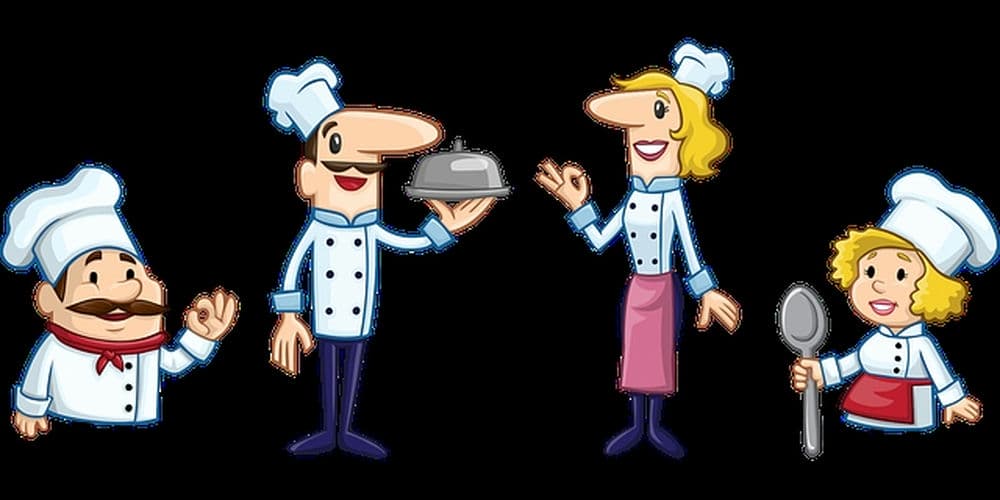
Becoming certified in your area of expertise can be a great way to hone your skills and stand out from the competition.. It's not always easy, however, as certifications often require significant time and effort. (It) Nevertheless, with the right dedication and enthusiasm, becoming certified can open up many new opportunities!
First off, one must identify their particular field of expertise.
Posted by on 2023-09-03
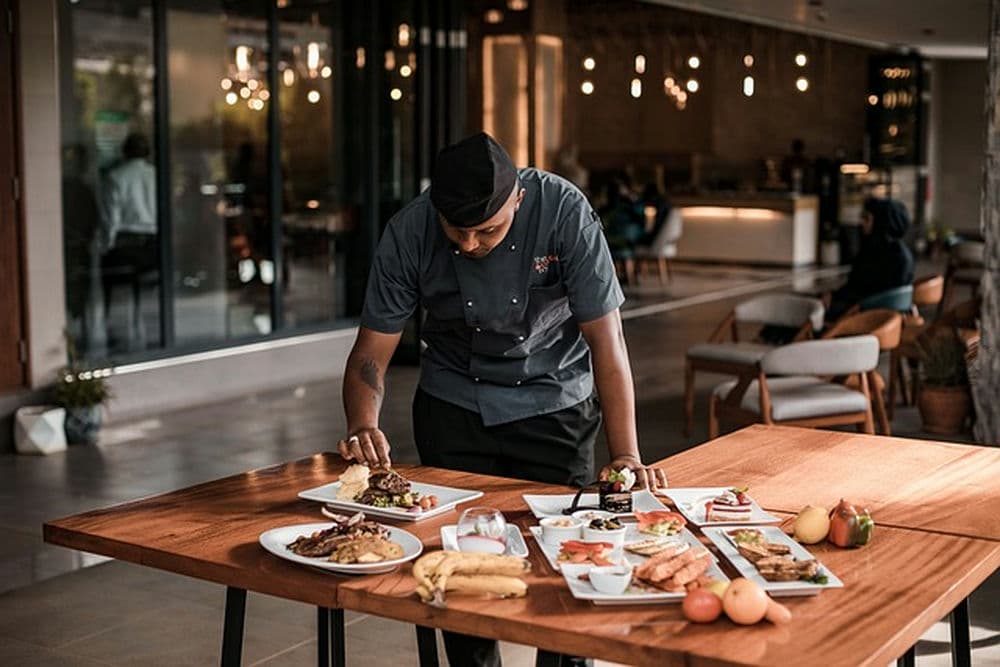
As an executive chef, success depends on charting the right course!. From menu creation to cooking techniques, there are many important decisions that must be made. (First and foremost,) it is essential to create new menus that reflect seasonal ingredients.
Posted by on 2023-09-03
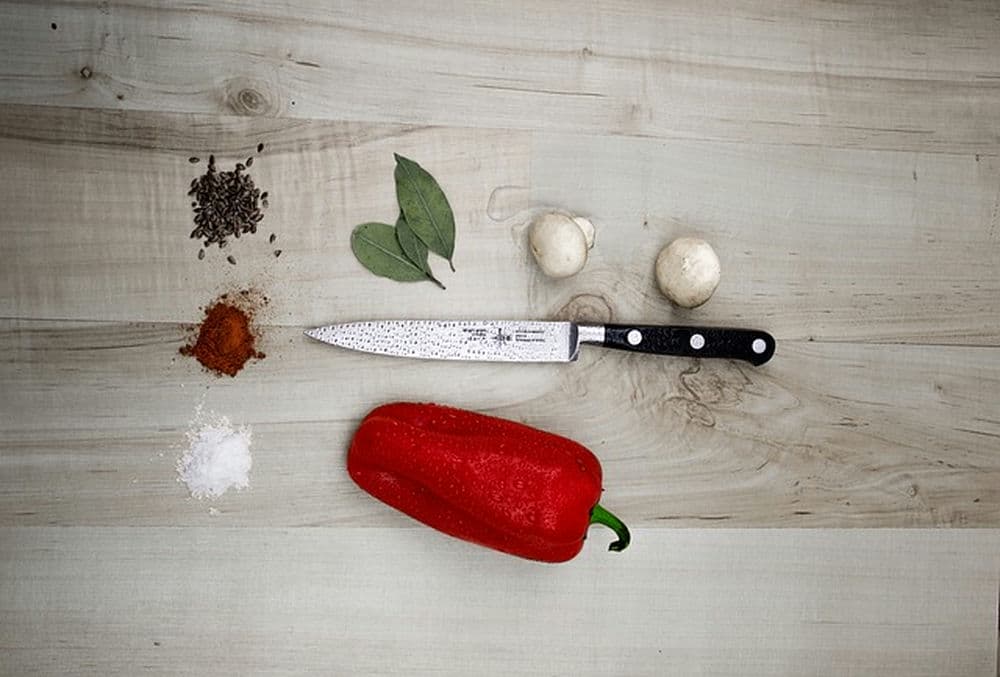
Cooking is an art that requires practice and patience to master. (No matter your skill level) It is never too late to get hands-on experience in the kitchen, and with a little bit of effort, you can become quite adept at it!. Learning through trial and error can be very beneficial; however, it takes time to perfect your technique.
Despite the challenges of learning how cook by oneself, there are many advantages!
Posted by on 2023-09-03
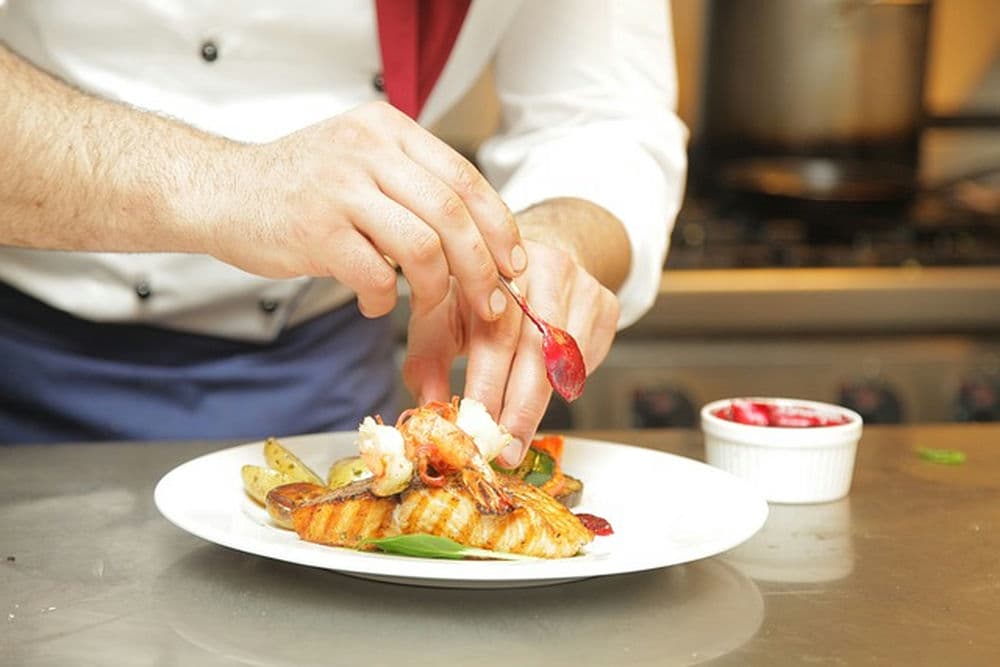
Cooking like a pro isn't easy; it requires dedication and resilience.. But don't give up on mistakes – learning from them is a key part of unlocking your inner chef!
Posted by on 2023-09-03

Being a great chef is more than just cooking delicious meals.. It means having an understanding of food safety regulations, strong organizational skills, and the ability to create unique dishes.
First, it's critical for a chef to understand all the rules and regualtions regulating food preperations.
Posted by on 2023-09-03
Culinary training is an important part of the food and beverage industry. There are various types of culinary training programs available to those wanting to become a chef or gain greater knowledge in the field. The (types) range from hobby classes to full-fledged degree courses, each offering different levels of expertise.
At the basic level, you can find classes that provide students with basic kitchen skills and recipes. These classes tend not last longer than a few weeks and usually don't require any prior experience or qualifications. They're great for people who want learn some basics but aren't necessarily looking to pursue it as a career. Furthermore, these short courses also have (negation) no formal examination requirement at the end which makes them less stressful than other courses.
For those pursuing careers in cooking or catering, there are more intensive options available such as diploma and advanced diploma courses. These involve studying different aspects of cooking such as nutrition, sanitation, menu planning etc., in addition to hands-on experience in the kitchen. Students typically need to complete assessments throughout the course before they get their qualification. Of course, even this is not enough for those aiming for top positions within restaurants or hotels; these individuals may need a bachelor's degree or higher!
Still yet, there are specialized courses available too which focus on particular cuisines such as Italian or French cuisine; these can be taken by anyone who wants to improve their knowledge and skills in that specific area! An added bonus is that many of these courses will also assist with job placement after completion - so it's well worth considering if you're serious about making culinary your profession!
In conclusion, whatever your motivation for learning about cooking there's sure to be a type of culinary training program out there suitable for you! From informal classes offering introductory skills all way up higher degrees - take your pick and start exploring today!!
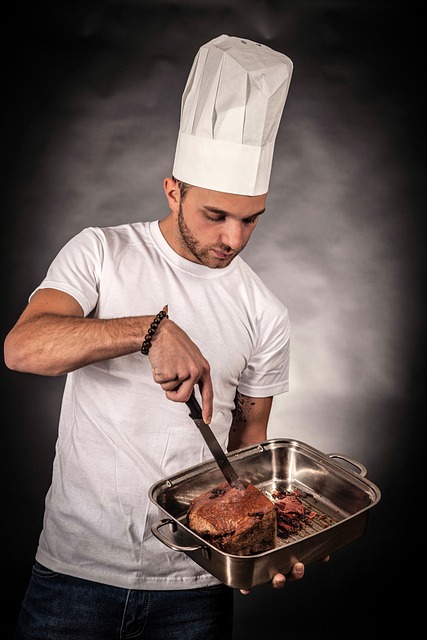
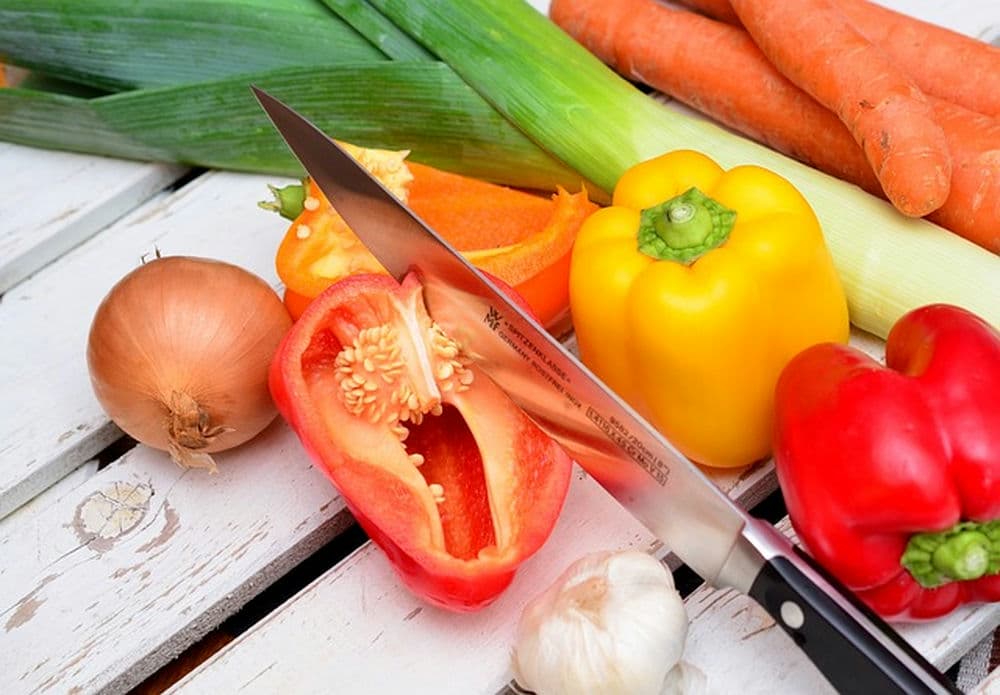
Culinary training can be a daunting prospect for those who want to pursue it! After all, there are so many programs available and finding the right one for your needs can seem like an overwhelming task. However, with a little research and guidance, you'll be able to find the perfect program that fulfills your career goals. (First of all,) It's important to consider what type of training you need. Do you want to become a professional chef? Or do you simply want to learn basic cooking techniques? Once you have this information figured out, you can begin searching for programs that cater specifically to these requirements.
Moreover, when looking at potential programs, make sure they're accredited or certified by some kind of governing body in order to ensure quality instruction. Also, pay attention to cost and location: if the culinary school is too far away from your home or too expensive for your budget, it might not be the best choice. Additionally, read reviews on different schools: this will give you an idea of their success rate as well as student satisfaction levels.
In addition , it's essential that whatever program you decide upon provides hands-on learning opportunities. This way, you can gain practical experience in the kitchen which will help prepare you for future employment prospects after graduation.(Finally,) don't forget to ask about internships and job placement services - these options could potentially lead to great career opportunities! All in all, finding the right program for your needs doesn't havet o be difficult; if done correctly and with enough attention paid ot detail , it's quite easy!
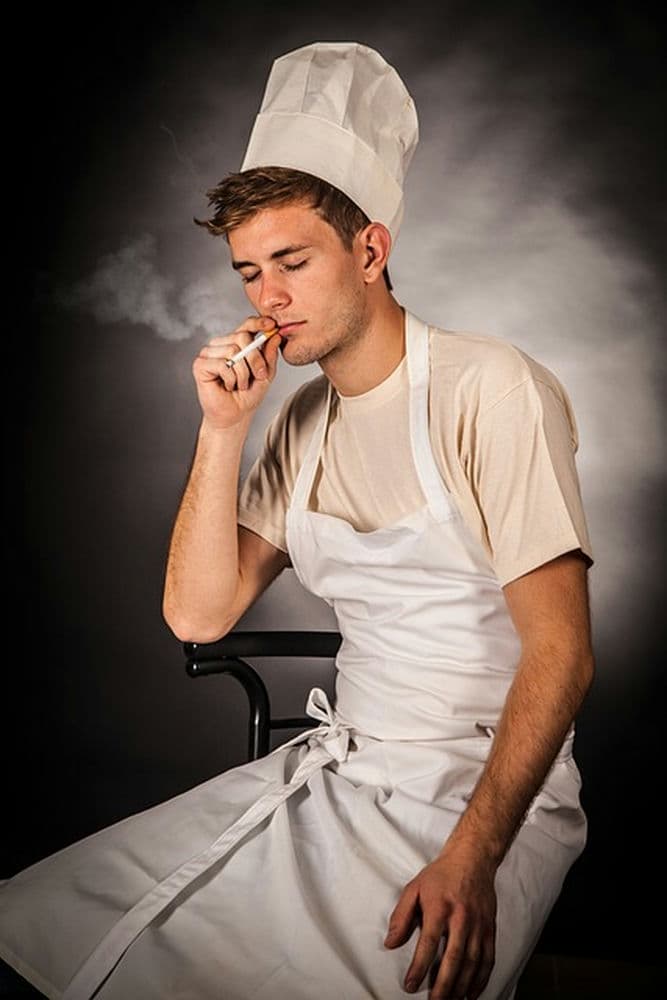
Completing a culinary training program is an incredibly rewarding experience! Not only do you gain the skills and knowledge to create amazing dishes, but you also open up (a plethora) of career opportunities. With your newfound expertise, there are a variety of directions you can take.
For instance, if you're interested in restaurants, you could pursue becoming a chef or sous-chef. This would involve overseeing kitchen operations, cooking meals, and ensuring that food safety standards are met. You might even make a name for yourself as an innovative restaurateur!
On the other hand, if you prefer more non-traditional paths, consider catering or personal chef services. As a caterer or private cook, you'd be able to work with clients directly on custom-made menus - allowing for creative freedom and greater control over your own schedule. Additionally, this line of work lets you explore new flavors and cuisines without the pressure of running an entire restaurant.
Additionally, many graduates choose to teach others about their craft by becoming instructors at culinary schools. Here they can share their passion with aspiring chefs while helping them hone their skills through hands-on instruction and mentoring programs. Moreover, many employers look highly upon those who have teaching experience!
No matter what route you take after completing culinary training program , it's sure to be an exciting journey full of delicious possibilities!
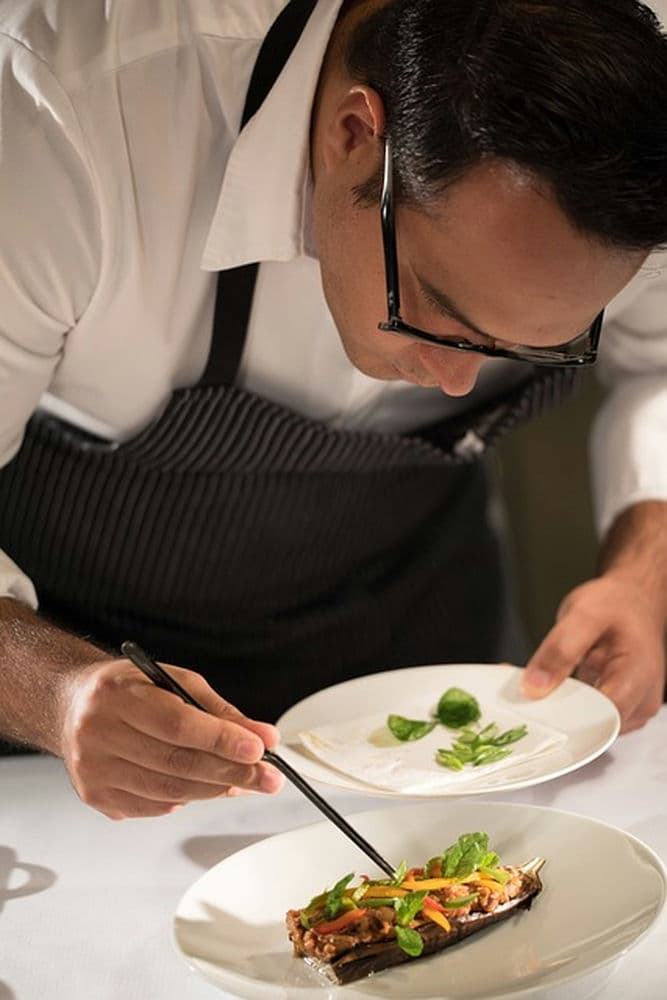
Financing options for culinary training programs can be daunting to consider. From scholarships and grants, to loans (and even some bartering!), there are a variety of ways to help cover the cost of your culinary education.
Scholarships are one way to fund your schooling. Many organizations offer them, and they don't usually need to be repaid! You may also find grants from the government or private foundations that could give you financial aid with no strings attached.
If you're looking for more long-term solutions, there are plenty of loan options out there too. Federal student loans may be available if you qualify, as well as private lenders who specialize in school financing. Just make sure you understand the terms before signing any paperwork! Plus, if you have a job while attending school, many employers will provide tuition assistance - so it's worth inquiring about those opportunities too.
In addition, don't forget about creative solutions like bartering services or goods with local businesses for tuition credits! It might sound weird at first but it could save you money in the long run - so why not give it a try?
No matter what route you choose to finance your culinary training program, remember that research is key when it comes to finding the best option for your situation. Take your time and explore all of your possibilities: from scholarships and grants to loans and beyond! After all, an investment in yourself is always worth making - (even if it means taking on debt!) And who knows? Once you've graduated with your degree in hand, you may just find that all of these efforts were truly worth it!!
Culinary training is a challenging and rewarding experience! It takes hard work, dedication, and certain skills to succeed. (First of all,) understanding key food preparation techniques is paramount to success in culinary school. Knife skills, sanitation protocols, and recipe modifications are just some of the important skills necessary to be successful. Additionally, creativity is an invaluable asset for any chef-in-training; being able to think on one's feet can make the difference between a good dish and a great one!
Moreover, organizational abilities also play an important role in culninary training. Being able to keep track of multiple dishes as well as ingredients can be tricky; it requires steely concentration and the ability to prioritize tasks efficiently. Furthermore, communication skills are essential for effective collaboration with other chefs and kitchen staff members - something that can prove difficult while under pressure in a busy kitchen setting!
Finally, having an overall passion for food should not be underestimated when embarking on a culinary adventure! A willingness to experiment with flavors and textures often yields delicious results; enthusiasm for learning new recipes will also help keep motivation high throughout the course. In summary, having the right combination of confidence, organization, technique knowledge and creative flair is vital for succeeding in culinary training. With these traits in tow there's no limit to what you can achieve!
Culinary training is an incredibly rewarding experience! It gives you the opportunity to learn all sorts of incredible dishes and techniques, as well as providing a great career path for those who wish to pursue it. In conclusion, culinary training can be a wonderful way to get involved in something exciting and unique. You'll gain skills that will last a lifetime and potentially open up doors to new opportunities. (Plus), you get to eat delicious food every day!
Moreover, there's really no downside (to) attending cooking school or classes. You may have to invest some time and money into the program, but it's worth it in the end. Even if you decide not (to) pursue a career in cooking afterward, you'll still have acquired invaluable skills that will aid you in other ways. Plus, cooking is fun and creative - so why not give it a try?
In summing up, culinary training can provide endless benefits both professionally and personally. Not only does it offer hands-on experiences with various foods and cuisines from around the world, but also gets your foot in the door of an ever-growing industry! So why not consider taking some courses or enrolling at a top-notch cooking school today? With determination and skillful practice, you could soon be preparing mouthwatering meals for everyone to enjoy!
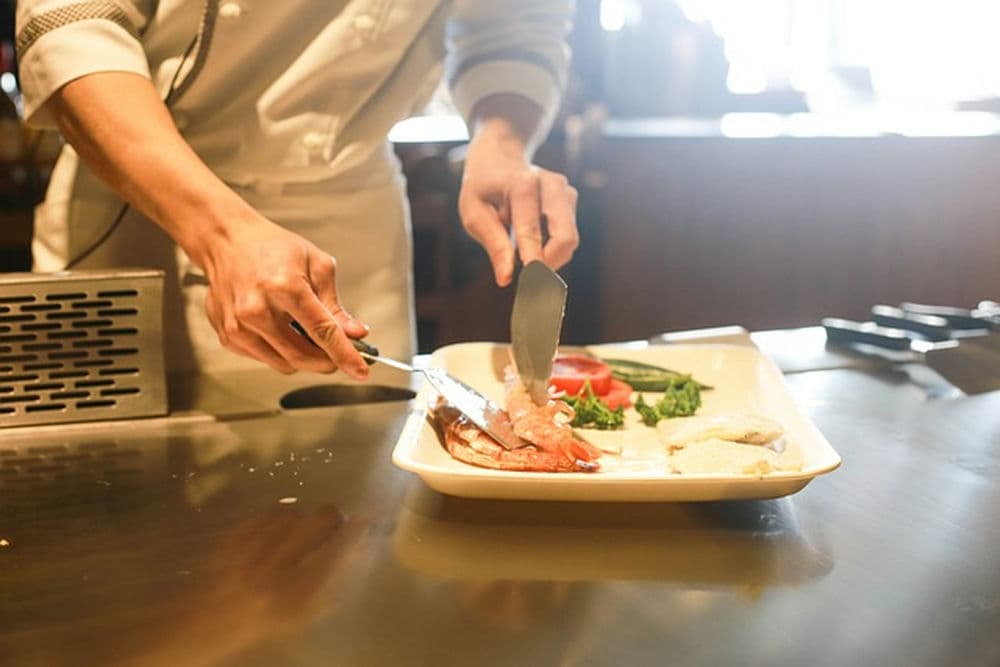
To become a chef, you typically need to have a degree in culinary arts or an equivalent qualification such as a diploma in hospitality. You may also benefit from additional training courses and certifications.
There are many different types of culinary training available, including basic cooking classes, specialized courses in areas such as pastry making or international cuisine, apprenticeships with experienced chefs, and online programs.
It can take anywhere from two years to four years to complete the necessary qualifications and gain experience as an apprentice before becoming a fully qualified chef.